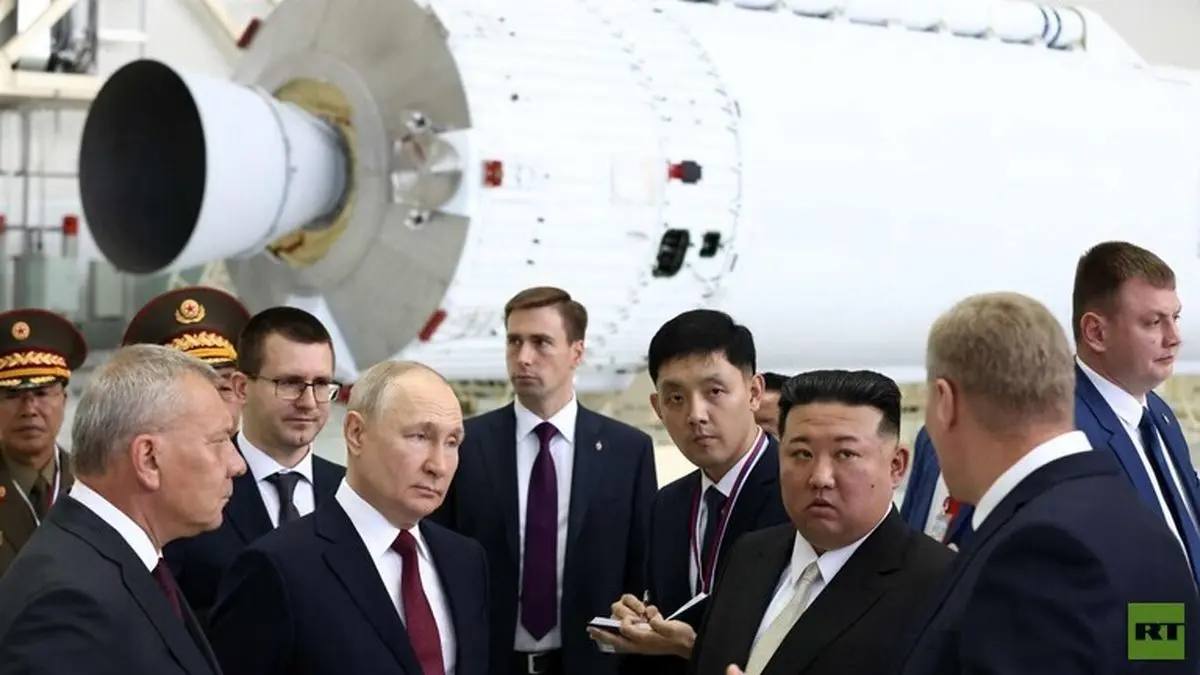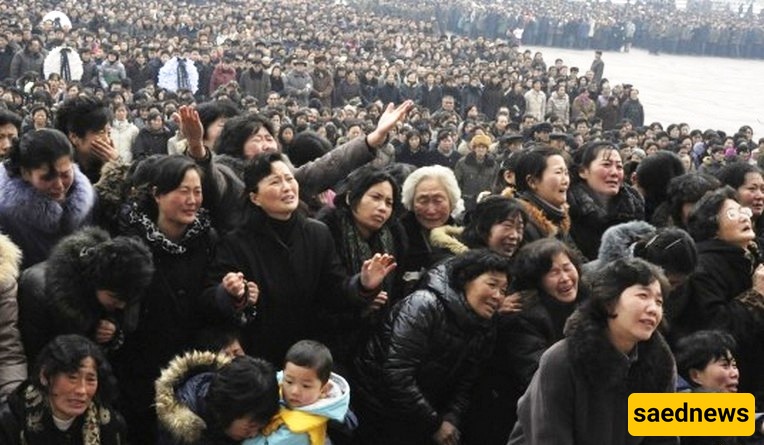SAEDNEWS: While the war in Ukraine is draining Russia’s human resources, new reports indicate that dozens of North Korean citizens are being sent, under a secret agreement between Moscow and Pyongyang, to perform grueling labor in Russian construction and industrial projects.

According to SaedNews, citing the BBC, amid the hidden dealings of isolated powers, North Korea and Russia have once again shown that politics can weigh heavily on the shoulders of the lowest-ranking humans. Informed sources and individuals who rarely have contact with the outside world told the BBC that hundreds of North Korean citizens, with vague promises or without consent, have been transferred to remote regions of Russia to work in construction, logging factories, and infrastructure projects. This process has intensified while both countries face international sanctions and seek avenues for cooperation and resource compensation. According to witnesses, these workers not only lack freedom of movement but also work under constant supervision of state officials. Their meager wages are transferred directly to the North Korean government, and the small portion they retain is barely enough to cover their daily food needs.

This practice is, in fact, part of North Korea’s long-standing pattern of earning foreign currency by sending labor abroad—a pattern banned in 2017 by a UN Security Council resolution. At the time, the international community believed that restricting labor exports would limit Pyongyang’s financial resources for its nuclear and missile programs. However, it appears that the war in Ukraine and Russia’s urgent need for labor have changed this equation. Analytical reports indicate that Moscow, ignoring sanctions, is using North Korean workers in infrastructure projects across Siberia and Russia’s Far East—regions where local labor shortages and harsh climatic conditions leave little incentive for domestic volunteers.
North Korean workers sent to these regions live under highly controlled conditions. Mobile phones, internet access, or any free contact with the outside world are prohibited. Their accommodations are usually camps with dilapidated buildings and minimal facilities, located near the workplaces. A source who previously worked on such a project told the BBC reporter: “We even had to get permission to buy a bottle of water. Our passports were confiscated upon arrival, and guards were always around.” These accounts provide a clear picture of a situation that human rights activists call “modern slavery.”
Analysts argue that the cooperation between Russia and North Korea in this context carries not only humanitarian implications but also broad geopolitical consequences. Moscow, facing sweeping Western sanctions after its attack on Ukraine, seeks allies and alternative resources to compensate for economic and logistical gaps. Meanwhile, North Korea uses this opportunity to strengthen its strategic ties with a nuclear power while gaining vital foreign currency for the regime’s survival. This exchange, in the form of human labor, may offer short-term political and economic benefits to both parties, but the real cost is borne by individuals who have no role in the decision-making.
Despite legal prohibitions, evidence suggests that the route for transferring North Korean workers to Russia is complex but effective. Many of them initially enter Russia on tourist or business visas and are then directed to workshops and factories. Their documents and identification are quickly taken under the control of officials, and contact with families in North Korea is limited to monitored messages. The monthly wages set for these workers are largely confiscated by the North Korean government, with some estimates indicating that only 10 to 20 percent reaches the worker. This amount is often spent on food and clothing purchased from stores supervised by the same officials, generating additional profit for the state.
Human rights organizations, including Human Rights Watch and Amnesty International, have repeatedly called for an international investigation into the conditions of these workers. However, the closed structure and severe restrictions on access to the work sites have made evidence collection difficult. Experts warn that if this trend continues, not only will the fundamental rights of these individuals be violated, but the legitimacy of UN Security Council sanctions will also be seriously undermined. They believe that Russia’s cooperation with North Korea in this regard sends a clear message to other countries: if political interests are at stake, international commitments can easily be set aside.
Meanwhile, state media in both countries rarely address the issue. In North Korea, any narrative about forced labor outside the framework of state propaganda is met with severe punishment. The Pyongyang government presents these deployments as a “chance to serve the motherland” and uses ideological language to describe them as a “revolutionary mission.” In Russia, state media tend to focus on the need to rebuild war-damaged areas or develop border regions, while remaining silent about the nationality and working conditions of the laborers. This media silence creates more space for the continuation of this hidden cooperation.
Despite all these restrictions, occasional accounts that slip through the system reveal a picture of human suffering that is rarely seen. One former worker, now living outside North Korea, said: “We worked in minus 30 degrees in winter, our gloves were torn, and our clothes got soaked. If work stopped, officials would threaten that our families back home would be punished.” Such testimonies show that forced labor abroad not only inflicts physical hardship on workers but also serves as a tool for political control over them and their families inside the country.
The consequences of this situation extend beyond the borders of the two countries. While the West insists on sanctions, the inability to prevent such cooperation raises serious questions about the effectiveness of these measures. Some analysts suggest that the international community should, instead of relying solely on economic pressure, use diplomatic channels and multilateral negotiations to curb such practices. Others believe that without widespread exposure and the mobilization of public opinion, there will be no political will to change the situation.
Ultimately, the plight of North Korean workers in Russia is a stark reminder that in the grand game of global politics, the voiceless are often the first victims. Those portrayed in official propaganda as national heroes are, in reality, victims of a system that turns human value into a tool of political exchange. And as long as the gates of information remain closed, this silent trade in suffering will continue in the shadow of politics.

